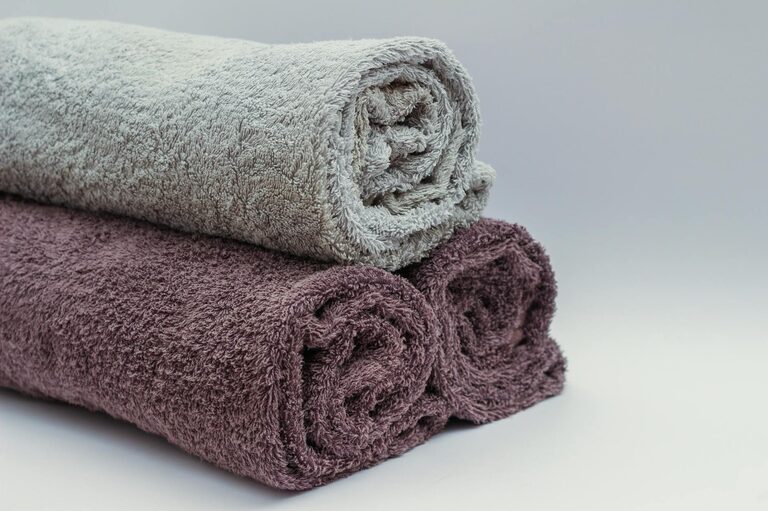Keeping your towels fresh and fluffy not only enhances comfort but also extends their lifespan. After all, who doesn’t love the feeling of wrapping up in a soft, clean towel? However, towels can often become stiff, smelly, or rough over time. Fortunately, by adopting a few simple habits and washing techniques, you can maintain their freshness and softness with ease. This guide shares practical tips to keep your towels in top condition, so they stay pleasant to use every day.
Why Towels Lose Their Freshness and Fluffiness
Before diving into solutions, it helps to understand why towels sometimes become less appealing:
– Residual detergent and fabric softener buildup: Using too much detergent or fabric softener can leave a coating that reduces absorbency and softness.
– Hard water deposits: Minerals in hard water can cause towels to become rough and dingy.
– Improper drying techniques: Over-drying or damp storage leads to stiffness and musty odors.
– Bacteria and mildew growth: Towels that stay damp for long periods can develop smells and lose freshness.
Knowing these factors allows you to adopt habits that prevent these problems.
Washing Tips for Fresh and Fluffy Towels
1. Use the Right Amount of Detergent
It’s tempting to use extra detergent to get towels cleaner, but this often backfires. Excess detergent can build up fibers and trap odors. Instead:
– Use the recommended amount on the detergent label.
– For front-loading washers, use high-efficiency (HE) detergent as it produces fewer suds.
2. Skip Fabric Softener or Use It Sparingly
Fabric softeners coat towels with a thin film that reduces absorbency and can make towels feel stiff after multiple washes. If you want to keep towels soft:
– Avoid fabric softeners or use a small amount occasionally.
– Consider alternatives like white vinegar (half a cup in the rinse cycle) to soften towels naturally.
3. Wash Towels Separately
Towels can produce lint and require a thorough rinse. Washing them separately:
– Ensures they get cleaned thoroughly.
– Prevents lint from sticking to clothes.
4. Wash in Warm Water
Warm water helps remove oils and dirt while being gentle enough to preserve fibers. Cold water may not clean as well, and hot water can wear fabric prematurely.
Drying Techniques for Soft Towels
1. Shake Towels Before Drying
Give your towels a good shake after washing to fluff up fibers. This simple step helps prevent stiffness.
2. Use a Medium Heat Setting in the Dryer
Over-drying at high heat damages fibers, while under-drying leaves towels damp and musty. Set your dryer to medium heat for best results.
3. Add Dryer Balls or Clean Tennis Balls
Toss wool dryer balls or clean tennis balls into the dryer with towels. They help separate the fibers and increase air circulation, resulting in fluffier towels.
4. Avoid Overcrowding the Dryer
Giving towels enough space allows hot air to circulate properly, promoting even drying and softness.
5. Air-Dry When Possible
On sunny, breezy days, air-drying outdoors can refresh towels and reduce static. Shake and fluff towels before bringing them inside to dry fully.
Maintenance Tips to Keep Towels Fresh Longer
1. Fold and Store Towels Properly
Store towels in a dry, well-ventilated space to avoid mustiness. Avoid tightly packed shelves or damp areas.
2. Wash Towels Regularly
Use towels frequently but wash them every 3 to 4 uses to prevent bacteria buildup and odors. More frequent washing may be needed during hot, humid seasons.
3. Use Baking Soda Occasionally
Add half a cup of baking soda to your wash cycle once a month to help remove odors and residue buildup.
4. Address Stubborn Odors with Vinegar Soaks
For foul-smelling towels, soak them in a mixture of one part white vinegar to four parts water for 30 minutes before washing.
Choosing Towels That Stay Fresh and Fluffy
1. Pick the Right Fabric
Cotton towels, especially Egyptian or Turkish cotton, are renowned for softness and absorbency. Microfiber towels dry quickly but may not feel as fluffy.
2. Consider GSM (Grams per Square Meter)
Higher GSM towels (500-700 GSM) are thicker and fluffier but take longer to dry. Opt for a balance that suits your climate and preferences.
3. Avoid Cheap, Low-Quality Towels
Investing in good-quality towels pays off with longer-lasting softness and durability.
Final Thoughts
There’s nothing quite like a freshly laundered, fluffy towel at the end of a busy day. By following these simple tips — from mindful washing and drying to proper storage — you can maintain the softness and freshness of your towels with minimal effort. Remember, a little care goes a long way toward making your daily routines more comfortable and enjoyable. Happy towel care!

